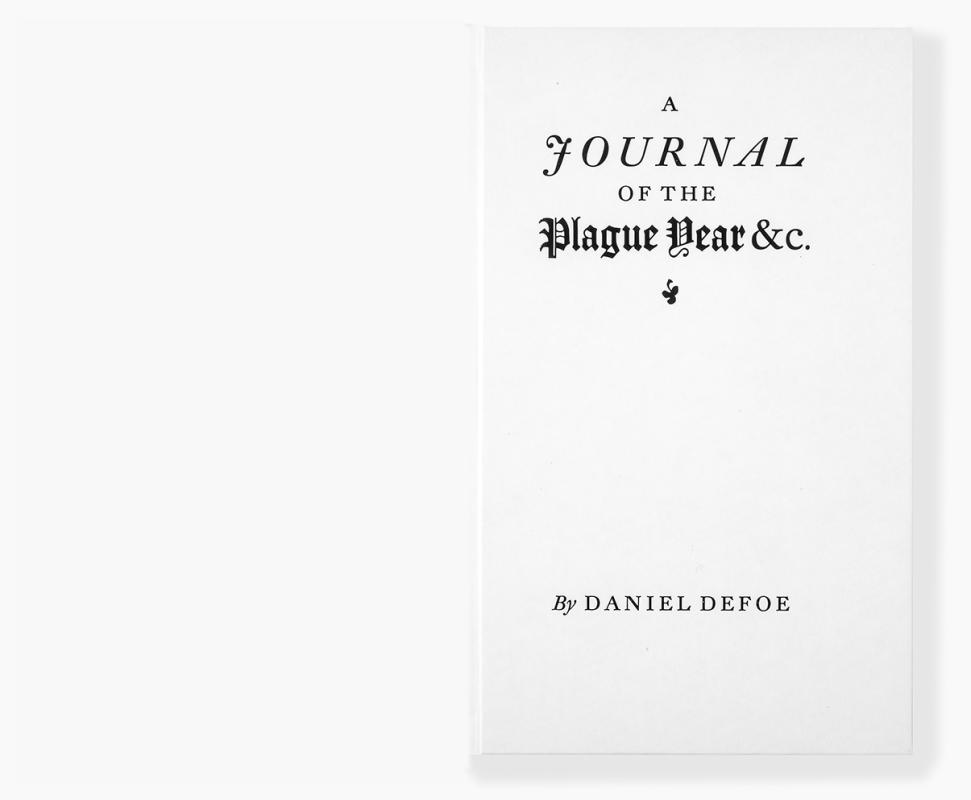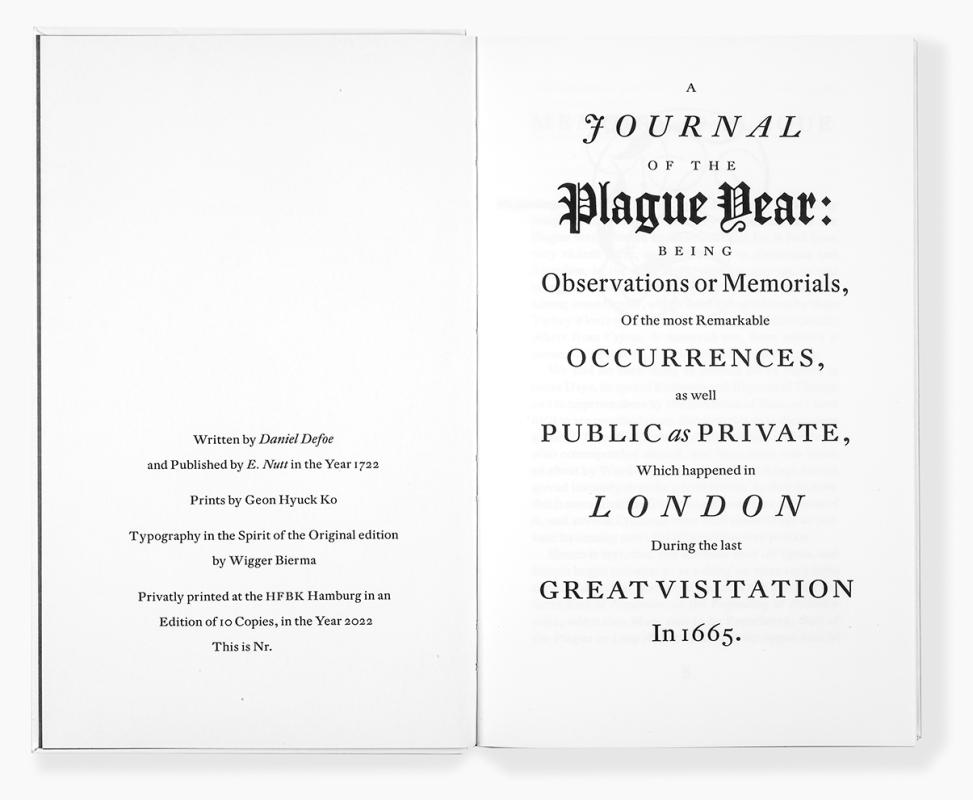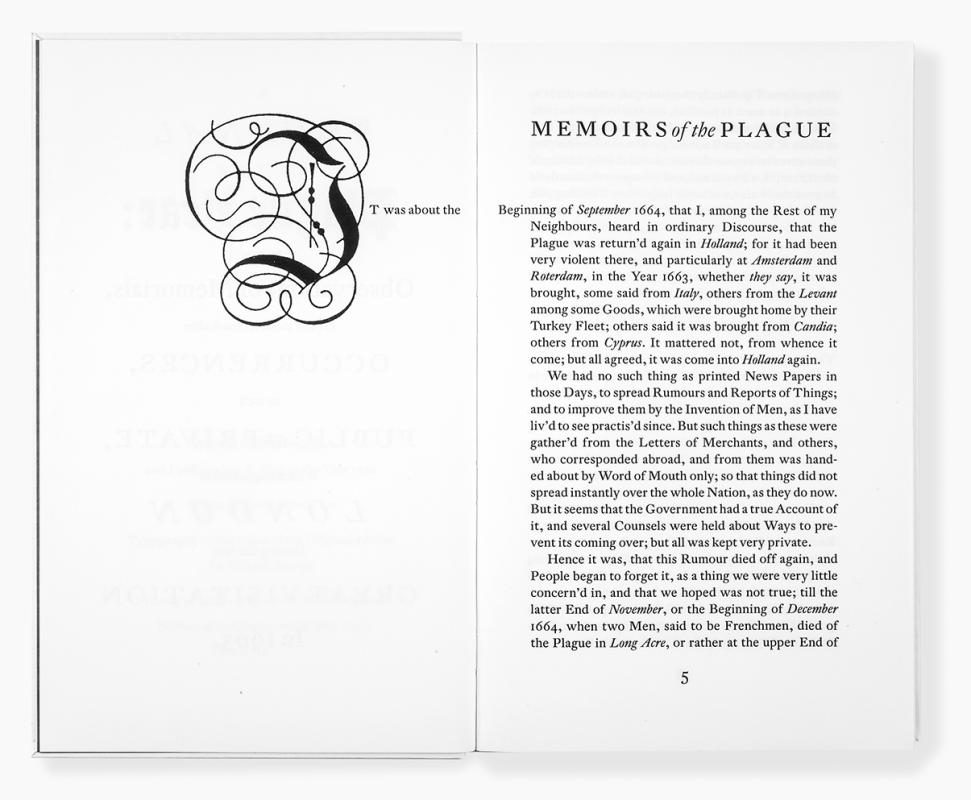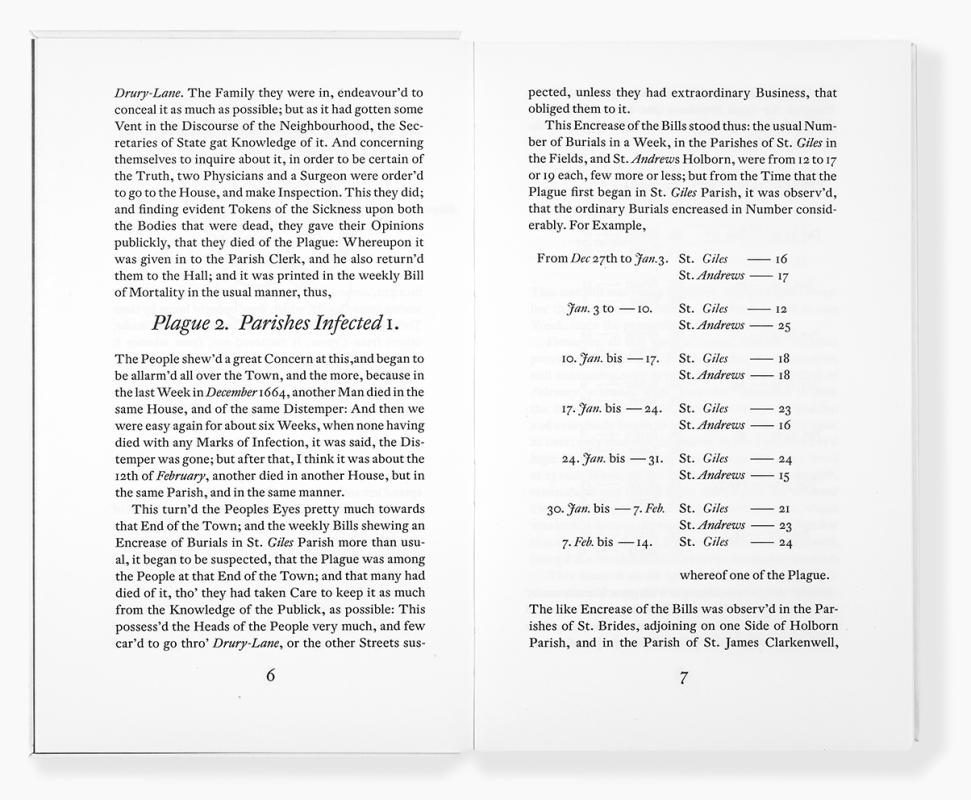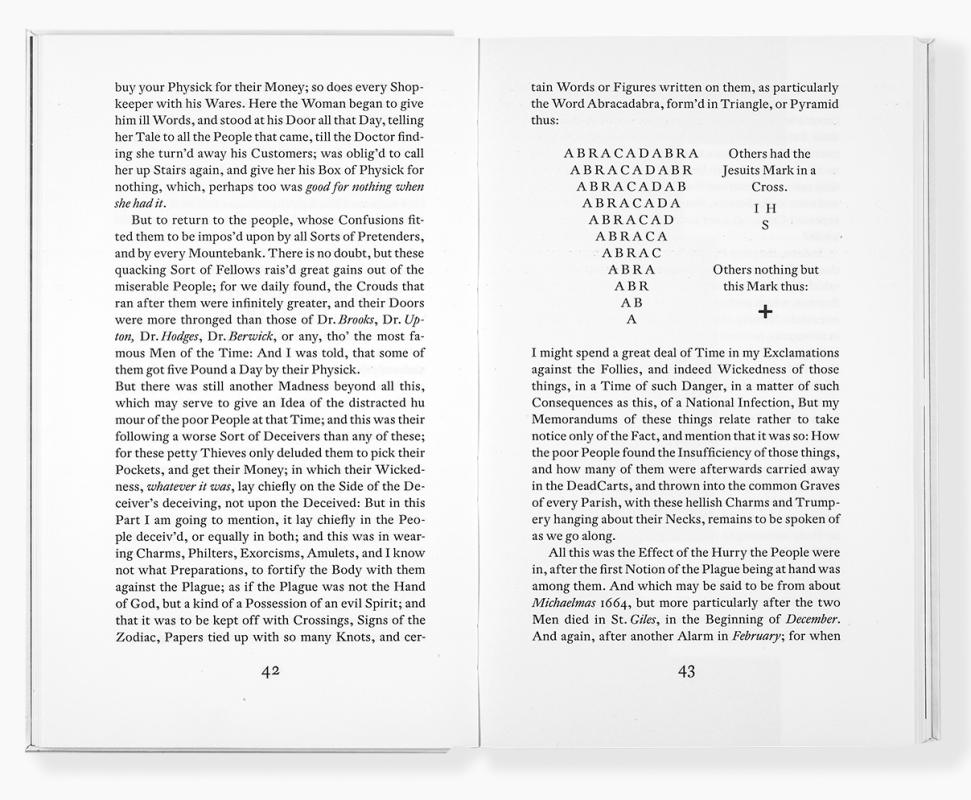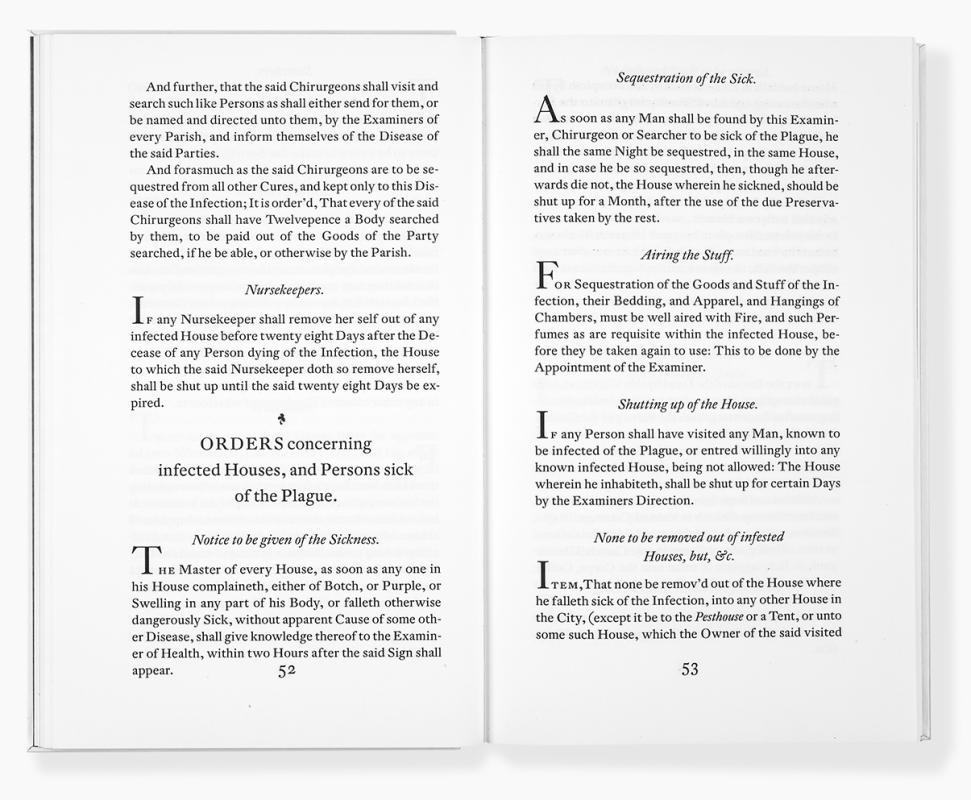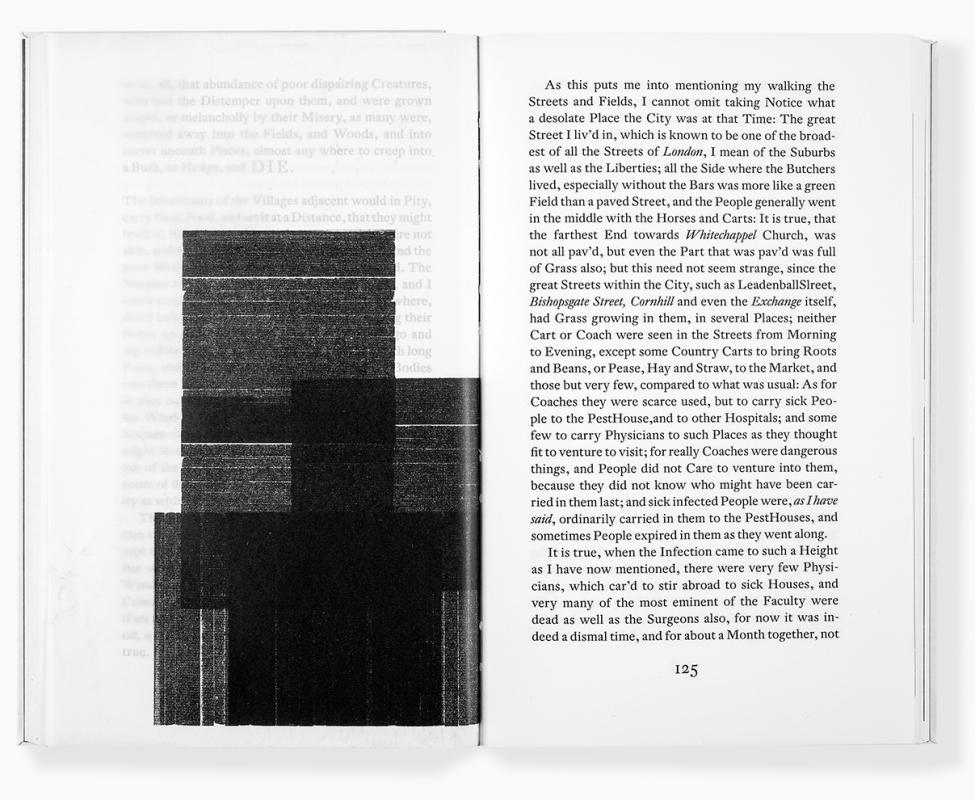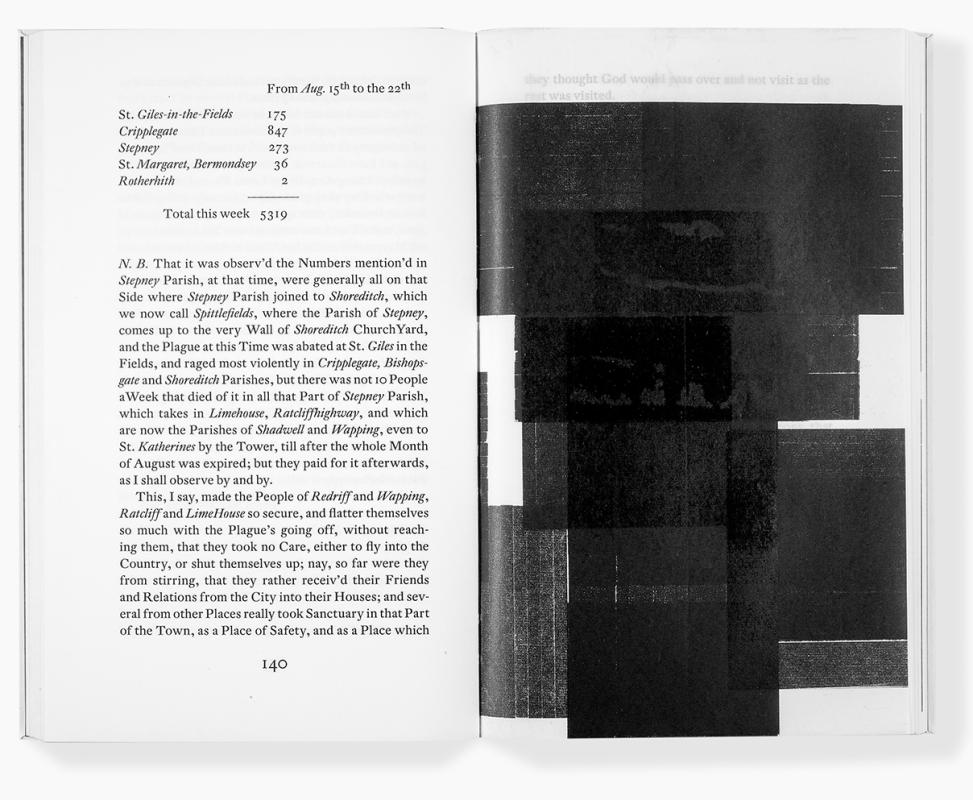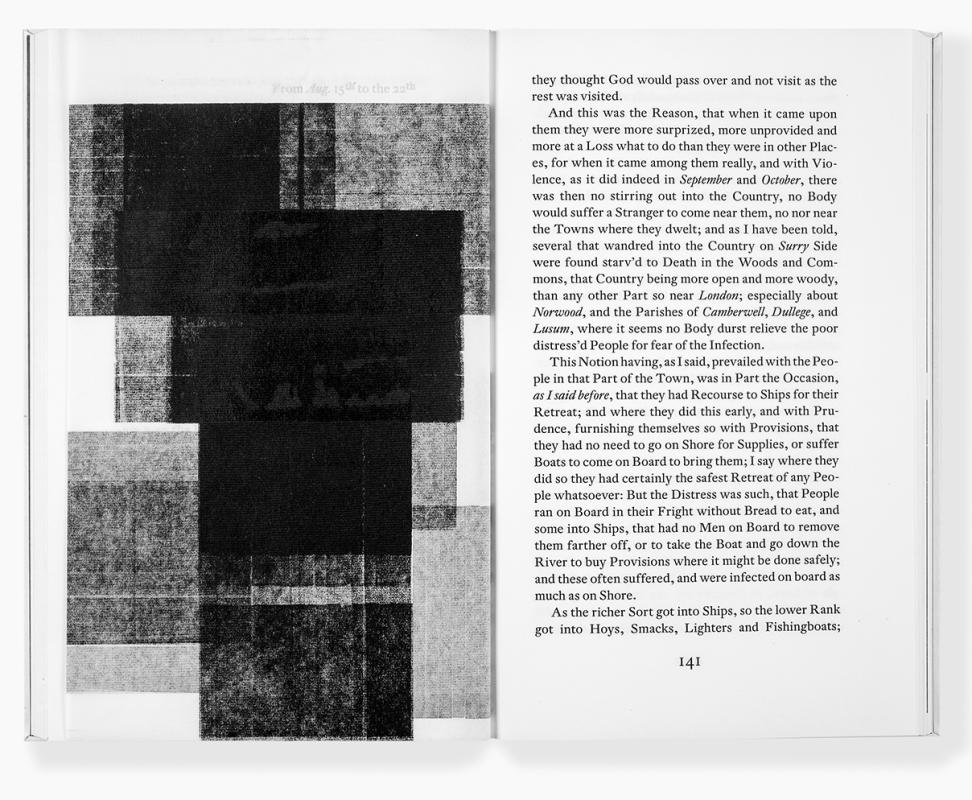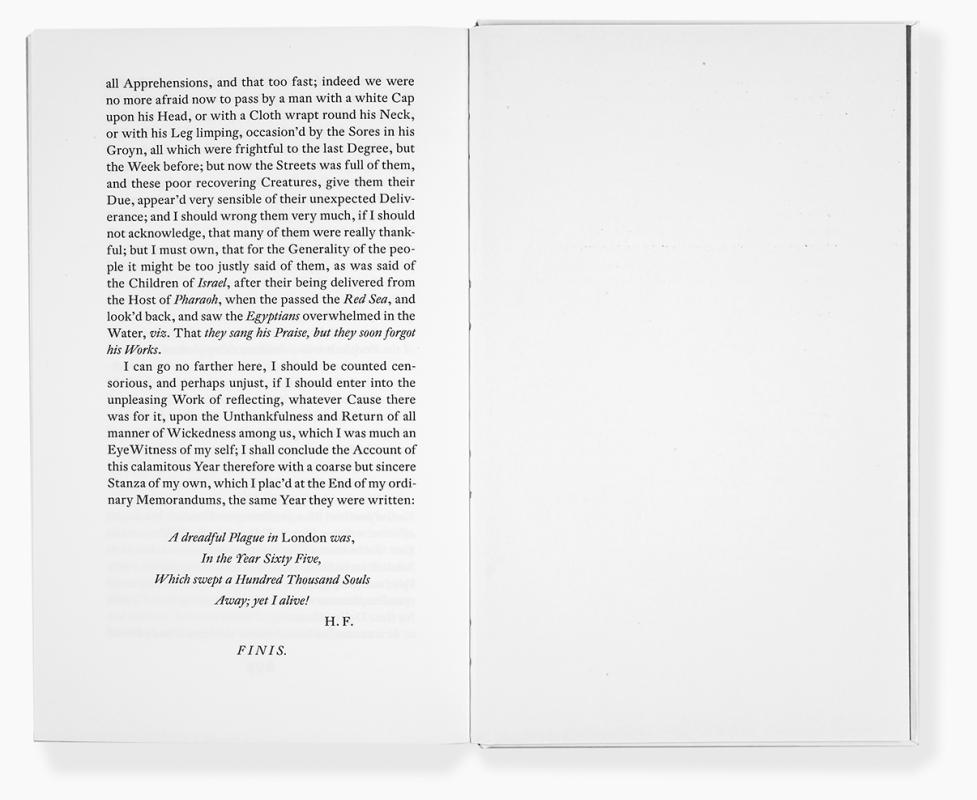Daniel Defoe: A Journal of the Plague Year
... which happened in London during the last Great Visitation in 1665
Wigger Bierma / Ralf Bacher (Prod.)
Impressum
privately produced by Ralf Bacher and Wigger Bierma
3/2022
Auflage: 10
Stk.
Material 436
Materialverlag, HFBK Hamburg 2022
Drucktechnik
300 pages ,
Digital Printing,
Hardcover ,Threat Binding
Beschreibung
Idea: Ralf Bacher / edited and produced under the impact of the Covid19 pandemic at HFBK Hamburg
with letterpress prints by Geon Hyuck Ko
Typography by Wigger Bierma in the spirit of the original edition from 1722
A Journal of the Plague Year
A mix of reportage and fiction that tells us something about the present.
[…] Daniel Defoe (1660 – 1731), the author of "Robinson Crusoe", wrote a remarkable book about the origins and course of one of the great plague epidemics: "A Journal of the Plague Year".
In a mixture of reportage and fiction, Defoe reports on the plague event of 1665/66. The book was published in 1722, almost 60 years after the catastrophe. Defoe was a child of five when the "plague" claimed the lives of 100,000 people in London and the surrounding area: "Undoubtedly Defoe mixed a number of traditions with what he may really have seen," wrote Sir Walter Scott admiringly. Scott considered the plague to be "suitable material for a pen as truth-loving as Defoe's". Jens Bisky said of Defoe's book that here was a "compassionate, carefully scrutinising and faithful man writing about the lives of the families, death lists and novellas that accompanied the catastrophe".
"The Plague of London" is a messenger report that Defoe wrote for his contemporaries so that they should act carefully and prudently: There was every reason to do so, as the epidemic had just broken out in Marseilles in 1721, and it was feared that it could reappear in London via Amsterdam. This, Defoe believed, had to be prevented at all costs, as the plague had ravaged London four times since the middle of the 14th century, but the last time in 1665/66 was by far the worst.
[…]
Defoe's account of the plague is a document that is still relevant today. Its literary strength lies in its realistic depiction, which results from the author's literary combination of facts and more or less credible individual accounts, thus making the complex events of the epidemic tangible. This corresponded to Defoe's understanding of a bourgeois morality committed to the Enlightenment, which, in the spirit of Calvinism, saw itself as both God-fearing and entrepreneurial and sought new forms for society and its institutions.
In its illusionless yet philanthropic perspective, "The Plague of London" is also a book for the present day. Anyone who wants to know something about the behaviour of people in extreme times will find what they are looking for in it.
Excerpts from the article by PETER FUNKEN, taz 11 April 2020 [translated]
